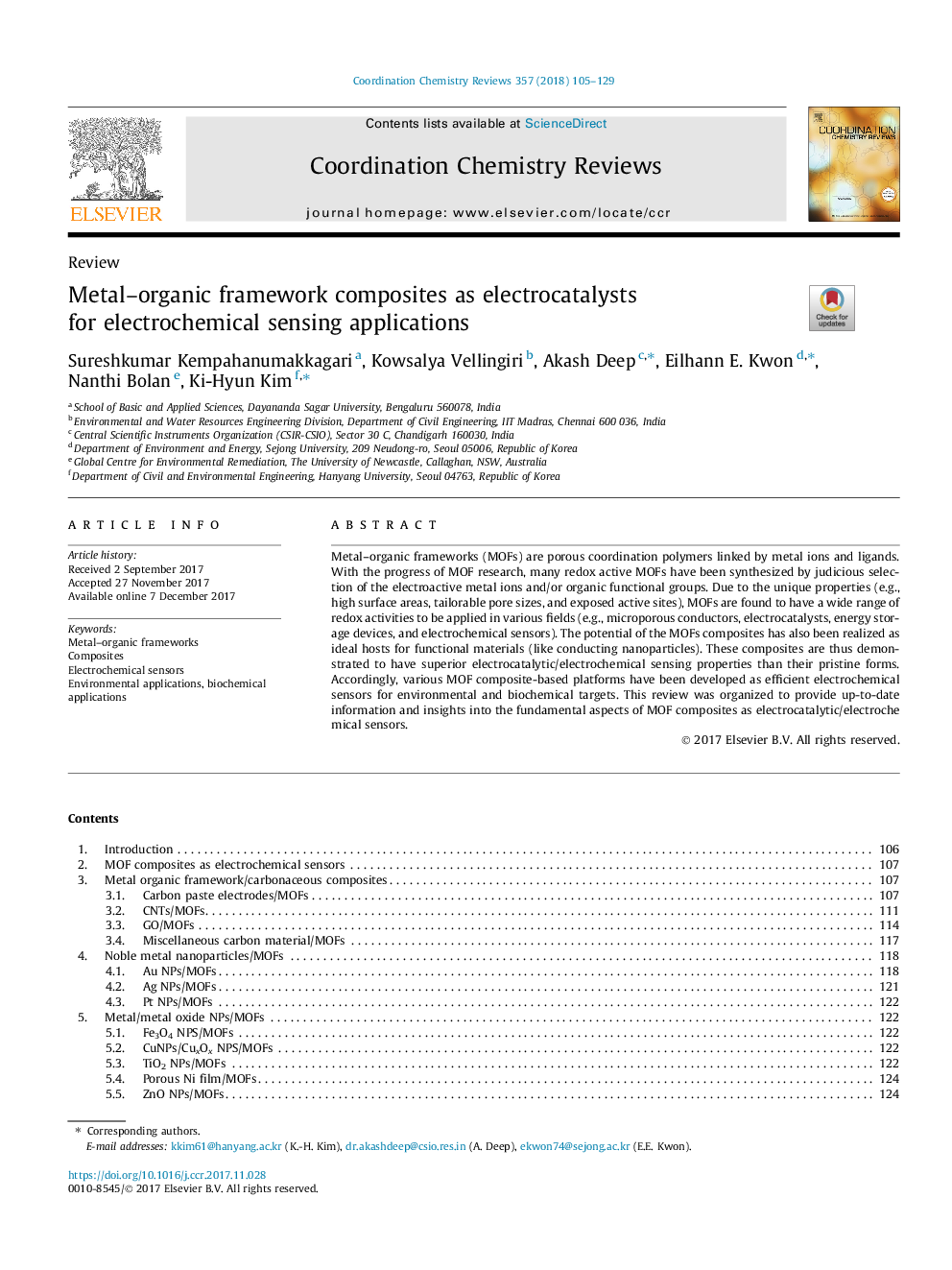| Article ID | Journal | Published Year | Pages | File Type |
|---|---|---|---|---|
| 7747709 | Coordination Chemistry Reviews | 2018 | 25 Pages |
Abstract
Metal-organic frameworks (MOFs) are porous coordination polymers linked by metal ions and ligands. With the progress of MOF research, many redox active MOFs have been synthesized by judicious selection of the electroactive metal ions and/or organic functional groups. Due to the unique properties (e.g., high surface areas, tailorable pore sizes, and exposed active sites), MOFs are found to have a wide range of redox activities to be applied in various fields (e.g., microporous conductors, electrocatalysts, energy storage devices, and electrochemical sensors). The potential of the MOFs composites has also been realized as ideal hosts for functional materials (like conducting nanoparticles). These composites are thus demonstrated to have superior electrocatalytic/electrochemical sensing properties than their pristine forms. Accordingly, various MOF composite-based platforms have been developed as efficient electrochemical sensors for environmental and biochemical targets. This review was organized to provide up-to-date information and insights into the fundamental aspects of MOF composites as electrocatalytic/electrochemical sensors.
Related Topics
Physical Sciences and Engineering
Chemistry
Inorganic Chemistry
Authors
Sureshkumar Kempahanumakkagari, Kowsalya Vellingiri, Akash Deep, Eilhann E. Kwon, Nanthi Bolan, Ki-Hyun Kim,
